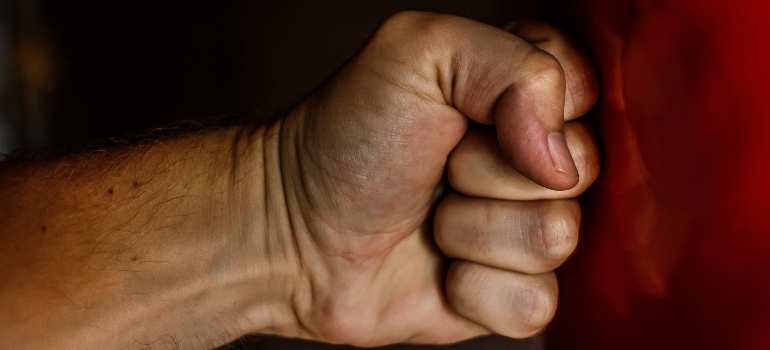The statistics show that almost 60% of all individuals who undergo addiction treatment relapse at some point. This means that relapse is not only likely to happen, but it is also quite normal. While many people consider relapse to be a great failure on their (or their loved one’s) part, it is wrong to look at it that way. The best way to look at relapse is as a natural part of the recovery process. However, at Harmony Ridge Recovery Center WV, we understand that relapses occur quite frequently and that they can be hard to deal with for both our patients and their loved ones. The best thing to do, of course, is to spot relapse behavior on time and act before the relapse actually occurs. To do that, you will need to be able to recognize both the common and subtle signs of relapse.
10 Subtle signs of relapse you may not be aware of
Relapse usually consists of three distinct stages. The first stage that usually comes is the emotional relapse, where a person starts thinking about using their substance of choice. Mental relapse is when the person starts to create reasons why they should go back to using. Ultimately, these two stages intertwine and culminate in a physical relapse, where the person returns to using their substance of choice. While emotional and mental relapses can be stopped in their tracks, treating an alcohol physical relapse will usually require a visit to an alcohol rehab Athens OH center, for example. That being said, you still need to be able to spot the signs of relapse if you want to prevent physical relapse from occurring.

The problem is that some of those signs may be more subtle than others. Here’s a list of some of the most common signs of relapse that you may not be aware of:
- Impulsiveness
- Cross-addiction
- Romanticizing past substance use
- Disregarding recovery practices
- Dishonest behavior
- Significant changes in attitude
- Lack of motivation for sober activities
- Lack of caring for themselves
- Overconfident behavior
- Financial issues
While these signs might indicate a relapse, they are not a guarantee that someone is actually relapsing. It is very important to understand that before you start accusing your loved one. Instead of looking at these signs as definitive proof of relapse, you might want to spend some time investigating further. Try talking to your loved one and see what they have to say. It is entirely possible that their behavior and/or issues are connected to something else.
That being said, let’s take a look into why these signs might indicate a relapse.
Impulsiveness
Many people that undergo addiction treatment and start living a sober life become a tiny bit more impulsive in the process. However, these changes are usually subtle and do not change the person’s character. If you start noticing that your loved one is suddenly making rash decisions, decisions they would not normally make, it may mean that they have relapsed (or are about to relapse) into their old ways. Before you start phoning the local alcohol rehab Cambridge OH center, however, you will want to have a talk with your loved one. Try to have them explain their impulsive bursts. They have been through a lot, after all, and it may so happen that their impulsive streak is due to them having difficulties living a sober life. Most of the time, however, enhanced impulsiveness indicates a relapse.

Cross-addiction
Recovering addicts often “substitute” their previous substance with another one. This is due to the fact that they need something to help them cope with their new, sober, life. Most of the time, they will start using a different addictive substance, one that is less dangerous than their previous one. This behavior is usually referred to as cross-addiction. However, it is entirely possible to get addicted to something else than another substance. For example, a person can get easily addicted to gambling, sex, gaming, or any other activity that provides them with a certain “high”.
The issue with cross-addiction is that it can be rather difficult to spot. The best thing you can do is identify any signs of compulsive behavior in your loved one and talk them through with an expert from the alcohol rehab center Clarksburg WV, for example. It is possible that this behavior can be helpful but it is much more likely that it will lead to a relapse.
Romanticizing past substance use is one of the very subtle signs of relapse
One of the most common subtle signs of relapse is when your loved one starts romanticizing their past substance use. Remembering fun and happy moments is not inherently bad, of course. However, when recovering addicts start talking fondly about their previous substance abuse, it usually leads to relapse. This is due to the way our brains work. When we start thinking about fond memories, we blur our memory and disregard the negatives.

It may also happen that your loved one can’t stop talking about how great of a time they had in the recovery center. While this is not as dangerous as romanticizing their substance use, it is still something to look out for. Some people may consider returning to their addiction just so they can return to an alcohol rehab center in Fairmont WV, for example. The best thing you can do is to consider any talk that combines substance abuse and romanticizing to be very dangerous. Your loved one may not even realize that talking in that manner may prompt them to relapse at a future point in time. It may be your job to let them know about the dangers that lie ahead.
Disregarding recovery practices
While some people might romanticize their stay in a recovery center, most people want to forget about their rehab as soon as possible. However, recovery does not stop once you leave the alcohol rehab center near Huntington WV, for instance. Recovery is all about making sure to follow good recovery practices. If your loved one stops attending regular meetings or starts canceling their therapy appointments, you might want to intervene. At the very least, you may want to check with their therapists and counselors whether that behavior is something to worry about. To spot these signs, however, you may need to keep a close eye on your loved one’s recovery program.
You may also want to keep an eye on who your loved one socializes with. People who are honest about their recovery will avoid spending their time with people who remind them of substance abuse. If you notice that your loved one is seeing their “old crew” again, it is highly possible that they are already relapsed, or that the relapse is imminent. Before you act, however, remember to talk with your loved one first. They may be tying up loose ends and have no intention of continuing to see their old contacts in the future. It is unlikely, yes, but it is possible.

Dishonest behavior
The fact of the matter is that people lie, it is simply in our nature. However, there’s a world of difference between lying about finishing your chores and lying about your addiction. Furthermore, it is perfectly natural to assume that someone who is recovering from addiction is going to be under scrutiny. This makes all lies quite deliberate. If you notice that your loved one is lying about their activities or finances, or is exhibiting any other secretive behavior, it is in your best interest to act immediately. In case of alcoholism, it is best to get in touch with the alcohol rehab center in Marietta OH, if you live nearby, and seek further counseling. If you do not do anything, chances are that your loved one will go back to their old ways sooner rather than later.
Significant changes in attitude
When people complete their treatment, they usually change slightly. However, the key word here is “slightly”. While recovering from an addiction is a challenging process, it is not one that can completely change someone’s character. Yes, the lack of substance might influence your loved one’s behavior but not dramatically. If you happen to notice dramatic attitude changes in your loved one, it may indicate that they have relapsed. What you may want to do is take note of exactly how and when the attitude change took effect and discuss it with medical professionals from the alcohol rehab center Point Pleasant WV residents recommend. It may so happen that these changes are natural but it is highly unlikely. It is much more likely that relapse is to blame.
Lack of motivation for sober activities is also one of the subtle signs of relapse
Self-isolation is one of the most common signs that someone is either relapsing or has already relapsed. However, some people try to hide their relapse by purposely avoiding showing signs of isolation. If that happens to be the case, there’s a good chance that they might start avoiding partaking in sober activities instead. Missing a few events here and there is perfectly normal, but choosing to avoid most sober activities because “they don’t feel like it” usually indicates a relapse.

Before you pass judgment, however, you may want to investigate further. It might be that some of the activities your loved one enjoyed were connected to their substance abuse in one way or another. But if your loved one shows absolutely no motivation in any sober activities, it may be time to contact alcohol rehab New Lexington OH center and talk to the medical professionals. They will be able to tell you whether your loved one’s behavior is indicative of relapse.
Lack of caring for themselves
Managing a successful recovery is all about self-care. If you notice that your loved one suddenly stopped caring about their appearance or their physical or mental health needs, chances are that they have already relapsed. You see, when a person stops caring about their well-being it means that they don’t care about almost anything else. The only thing that they may care about is returning back to their substance of choice.
Spotting that your loved one has stopped caring about themselves might be somewhat tricky, though. This is due to the fact that you will seldom be able to notice any apparent physical changes if they are trying to hide them. You may need to be very observant to notice that your loved one has stopped caring about themselves properly.
Overconfident behavior
Confidence in your recovery process is never a bad thing. However, overconfidence can be a very bad thing. Overconfidence can make you stop your treatment and push you toward relapse quicker than you can blink. If you happen to notice that your loved one is “strangely confident” about how their recovery process is going, you might want to investigate a bit further. Talk to your loved one and verify that they are still following their long-term recovery goals. It is quite possible that overconfidence is warranted but it is usually a sign that something has gone wrong during the recovery process.
Financial issues
Lastly, this might not be a very subtle sign but it is a very important one to look out for nonetheless. As far as signs of relapse go, financial issues are usually a dead giveaway. If you notice that your loved one needs to borrow money, that they have difficulties making their payments, or that they are struggling financially in any unusual way, talk to them immediately.
When talking to your loved one about any potential signs of relapse, make sure that you do not exhibit any judgmental behavior or strong emotions. Try to be as supportive as possible and let them know that everything you are doing is in their best interest. If your loved one sees judgment in your face, they might shy away from you, get angry, or simply ignore anything you might want to say. Love, on the other hand, is not as easily rejected.



